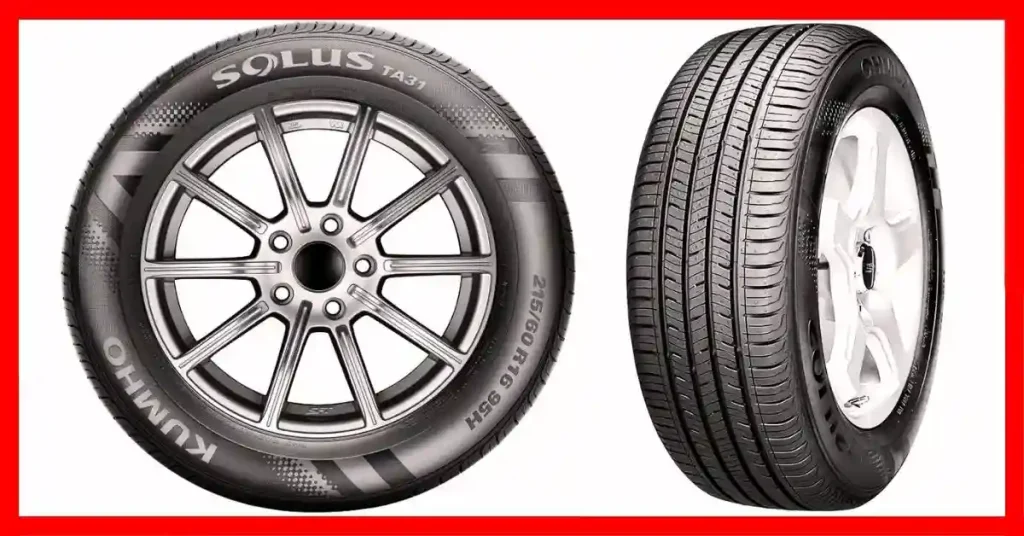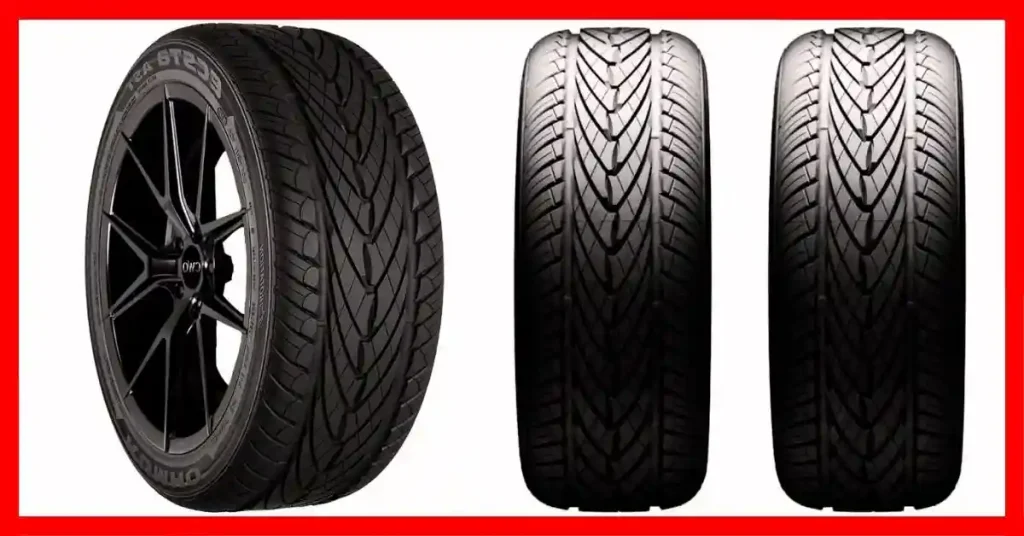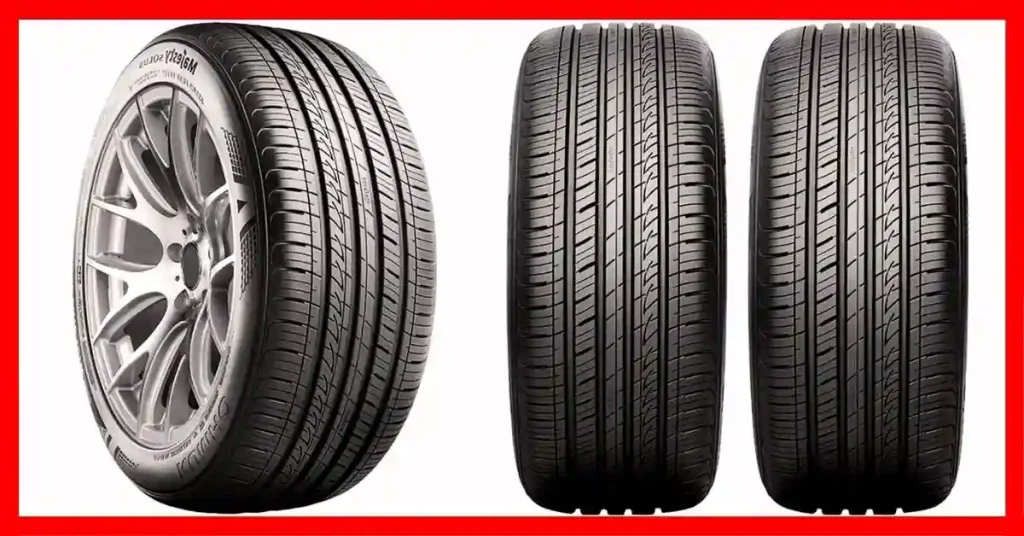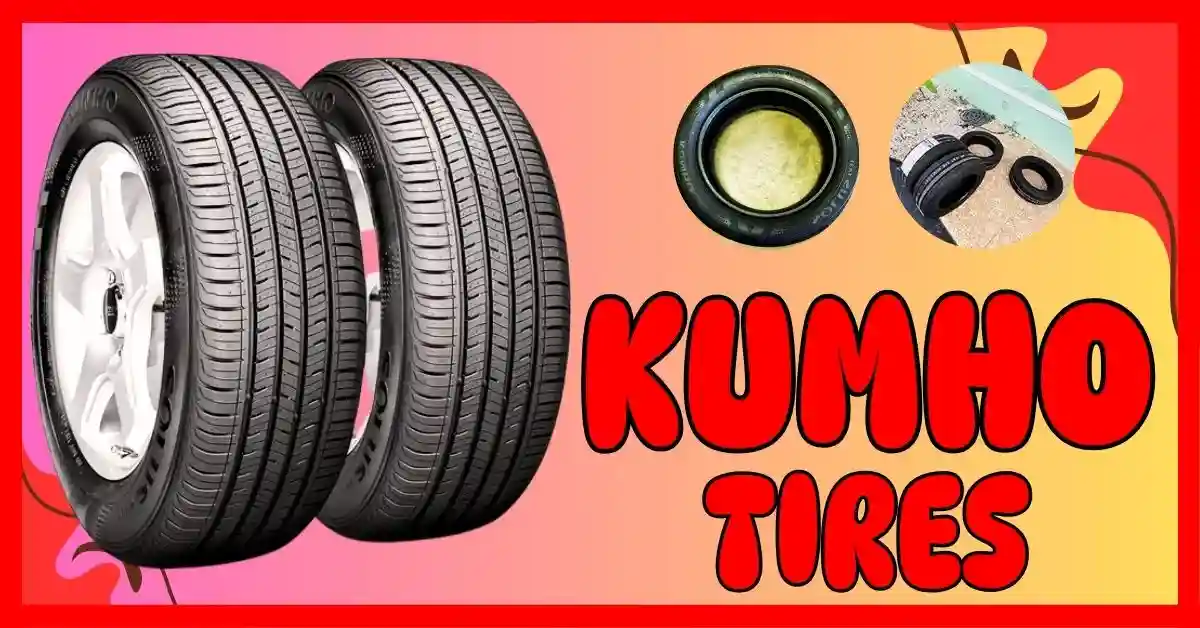When I first heard of Kumho tires, I had doubts. I thought, Are Kumho tires good, or just cheap? I had always used big brands like Michelin. But a friend told me he liked his Kumho Solus tires.
I drive a midsize car. Most days, I stick to city roads. On weekends, I hit the highway. I sometimes drive in rain or light snow. So I gave Kumho a try.
In this review, I’ll share what I learned. I’ll talk price, grip, noise, and wear. If you’ve asked, Is Kumho a good tire? I’ve been there—and I’ve got real answers.

What Are Kumho Tires?
Kumho is a tire brand from South Korea. They’ve been around since the 1960s and now sell worldwide. Yes, that includes right here in the U.S.
If you’re wondering, “Are Kumho tires good?”, the short answer is yes—for many drivers, they are. Kumho makes all kinds of tires: all-season, winter, touring, and sport. Their Solus line is great for daily use. The Ecsta line is made for speed. They even make tires for snow.
Many folks ask, “Where are Kumho tires made?” Some come from South Korea. Others are built in China or the U.S.—including a plant in Georgia. You can check the tire’s sidewall to see where yours came from.
Kumho also has a tech center in Ohio. That means they test and tune some tires here in the States. So if you’re asking, “Is Kumho a good tire?”, it’s clear they take their job seriously.
In short, Kumho gives you solid value. They may not be as fancy as big brands, but they hold their own. If you want good grip, a smooth ride, and a fair price, Kumho might just be the right fit.
Why I Compared Kumho to Michelin (or Another Top Brand)
When I saw how cheap Kumho tires were, I had to pause. They cost almost half as much as the Michelin CrossClimate2. That made me wonder—can a tire that cheap really be any good? Or was I just asking for trouble?
I drive a mid-size car and go back and forth between city streets and the highway. I also drive in the rain and light snow. So I need tires that feel safe, ride smooth, and last a while. I’ve heard great things about Michelin. Many say the CrossClimate2 is one of the best all-season tires out there. But with prices that high, I figured it was worth seeing how Kumho Solus 4S stacked up.
So I gave them a shot.
Right after installing them, I took a few test drives. The ride felt soft and smooth. Road noise was quiet. The tires held firm on wet pavement. I was honestly surprised by how well they did for the price. Sure, they didn’t hug tight corners like Michelin does. But for daily use? They came pretty close.
That’s why I made this comparison. Most drivers want good tires without spending a fortune. Michelin is top-tier. But Kumho gives you a lot for less, and that’s a win if you’re on a budget.
My Experience with Kumho Tires
Installation and First Impressions
The install was quick and cheap. I went to a local shop and was back on the road in less than an hour. The price was low, which made me happy.
Once I drove off, the car felt smooth. I didn’t hear much road noise. For a low-cost tire, Kumho felt pretty good right away.
City and Highway Driving
I drive in both city traffic and on the highway. In town, the tires did well over bumps and turns. Steering felt light but in control.
On the highway, the ride stayed calm. Even at high speeds, the car felt safe and steady. These tires are great for daily driving—quiet, smooth, and easy to trust.
Wet Weather Performance
I hit a lot of rain during my first month. Roads were slick, but the Kumhos held tight. I didn’t feel any slipping or loss of grip.
Braking in the rain was firm and fast. No sliding. No hydroplaning. For wet roads, these tires do a solid job.
Are Kumho Tires Good in Snow?
I didn’t get heavy snow. But I drove in cold, slushy weather a few times. The tires had enough grip for light snow and ice. I never got stuck.
For light winter roads, the Solus 4S is good. But if you live in a snowy place, go with full winter tires.
Longevity and Tread Life
I’ve put on a few thousand miles so far. The tread still looks strong. No uneven wear yet.
I also checked online reviews. Many say Kumho tires can last 40,000 to 60,000 miles with care. They might not last as long as top brands, but they hold up well for the price.

👉🏿👉🏻 Check Latest Price and Offer at Amazon 👈🏻👈🏿
What Other Drivers Say: Kumho Tire Reviews
Before I bought Kumho tires, I looked up what other people said. I read reviews on tire shops, forums, and Reddit. Most drivers liked them, especially for the price.
Many said Kumho tires ride smooth and quiet. Some liked how they handled rain. Others said they got a lot of miles before needing new ones. The Solus, Ecsta, and Crugen lines came up often in a good way.
But not all reviews were perfect. A few drivers said the tread wore out a bit fast. Others felt they didn’t do well in heavy snow. A small number said they switched back to bigger brands like Michelin.
Even so, most users say Kumho tires are good for everyday use. I saw a lot of comments like “great value” and “better than I thought.”
The Solus 4S is popular for daily cars. It’s quiet and handles well in the rain. The Ecsta line looks sporty and grips well on dry roads. The Crugen series is made for SUVs and trucks. People say it gives a smooth, safe ride.
In short, many drivers say Kumho is a smart buy. The tires may not be fancy, but they work well. And for most of us, that’s what matters.
Are Kumho Tires Worth the Price?
Let’s get to the big question—are Kumho tires really worth it? In my view, yes. If you want a tire that feels good on the road and doesn’t cost a fortune, Kumho is a solid pick.
When I shopped around, Kumho tires were often 30% to 50% cheaper than brands like Michelin or Goodyear. For example, a Kumho Solus 4S in my size cost around $100 per tire, while a Michelin CrossClimate2 was closer to $180. That’s a big gap—especially if you’re replacing all four tires.
What impressed me most was that I didn’t feel like I was cutting corners. The ride felt smooth, the tires handled rain well, and I felt safe driving. Sure, Kumho may not last quite as long as some top-tier brands. But for normal daily use, the value is hard to beat.
Kumho tires offer great value for the money, especially for commuters, families, or anyone driving a lot on city or highway roads. You get a tire that’s quiet, handles fine, and doesn’t break the bank.
And yes, you can easily buy Kumho tires in the U.S. They’re sold at big chains like Discount Tire, Walmart, and Tire Rack. Some local shops carry them too. So getting a set and having them installed is no problem at all.
If you’re looking for an affordable tire that still delivers real performance, Kumho is absolutely worth considering. I’d call them a smart buy for everyday drivers.
Pros and Cons of Kumho Tires
Let’s break it down. Like most things in life, Kumho tires come with both upsides and trade-offs. But for the price, they offer a lot.
Pros
They’re affordable. That’s the big win. You can get a full set of Kumhos for less than the cost of two premium tires. If you’re on a budget, this is a huge plus.
They ride smooth and quiet. I was surprised how calm my car felt, even at highway speeds. For everyday driving, Kumho gives you a comfy ride.
Wet grip is solid. I’ve driven through downpours without any slipping. Kumho tires hold the road well in rain, which gave me peace of mind.
Great value overall. When you balance cost, comfort, and performance, Kumho really shines. They offer more than what you’d expect at their price point.
Cons
Tread life may be shorter. Some models don’t last as long as top-tier brands. I’ve read reviews that mention faster wear after 30,000–40,000 miles, especially with hard use.
Fewer performance options. If you’re looking for high-speed grip or track-ready tires, Kumho isn’t your best bet. They focus more on touring and all-season comfort.
Not ideal for deep snow. While the Solus 4S handled light snow fine, it’s not a true winter tire. Drivers in cold, snowy places should still consider a dedicated snow tire.
Lower brand recognition in the U.S. Some folks are hesitant just because they haven’t heard of Kumho. But don’t let that fool you—they’re a global brand with solid tech behind them.
Bottom line? Kumho tires give you a lot for your money. They’re not perfect, but if you drive daily and want comfort without spending a fortune, they’re a smart choice.

👉🏿👉🏻 Check Latest Price and Offer at Amazon 👈🏻👈🏿
Final Verdict: Are Kumho Tires Good or Bad?
So, are Kumho tires good or bad? From my real-world driving, they’re definitely good—especially for the price. I’ve put them through city streets, long highway trips, and rainy days, and they’ve held up better than I expected.
No, they’re not fancy like Michelin. But that’s not the point. Kumho tires give you comfort, solid grip, and decent tread life at nearly half the price. For me, that trade-off made perfect sense.
If you’re a daily driver, commuter, or just someone who wants good tires without draining your wallet, Kumho is worth a look. They’re not for extreme snow or track days, but they’re great for the everyday stuff most of us deal with.
Would I buy Kumho tires again? Yes. For the kind of driving I do, they’ve been more than enough. And knowing I saved money without giving up safety or ride quality? That’s a win in my book.

👉🏿👉🏻 Check Latest Price and Offer at Amazon 👈🏻👈🏿
FAQs
Q: Are Kumho tires any good?
Yes, Kumho tires are a smart choice for daily drivers. They offer a smooth ride, solid grip, and great value. If you’re looking for good performance without spending too much, Kumho delivers.
Q: Are Kumho Solus tires good?
The Solus line is great for comfort and wet weather. I’ve driven them through heavy rain, and they stayed quiet and sure-footed. They’re perfect for commutes and everyday use.
Q: Are Kumho tires good in snow?
Kumho’s all-weather tires like the Solus 4S can handle light snow well. I felt safe on slushy roads, but for deep snow or icy hills, true winter tires are the better bet.
Q: Is Kumho a good tire brand?
Kumho is a trusted name from South Korea. They’ve been around for decades and keep improving their designs. Their blend of price, comfort, and safety makes them a solid choice.
Q: Where are Kumho tires made?
Kumho tires are made in South Korea, China, and the U.S. It depends on the model and where it’s sold. The quality is consistent across the board, based on what I’ve seen.Q: How long do Kumho tires last?
With good care, most Kumho tires last between 40,000 and 60,000 miles. I’ve been tracking my tread, and it’s holding up well so far. Rotate them on schedule, and you should get solid life out of them.
To Get More About Car Accessories Product You Can Visit Our Site. If You Found our Posts Helpful Leave a Comment Below

